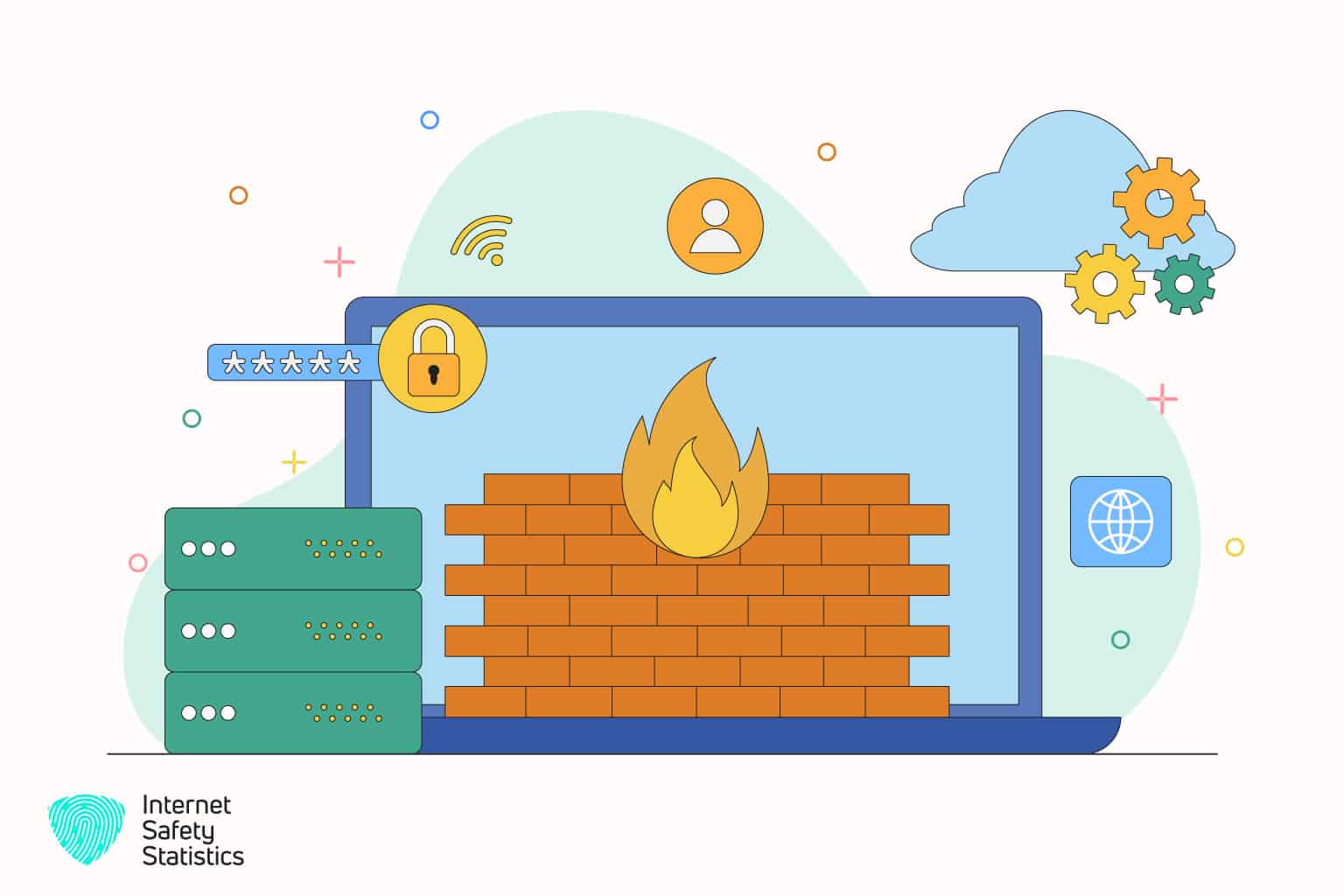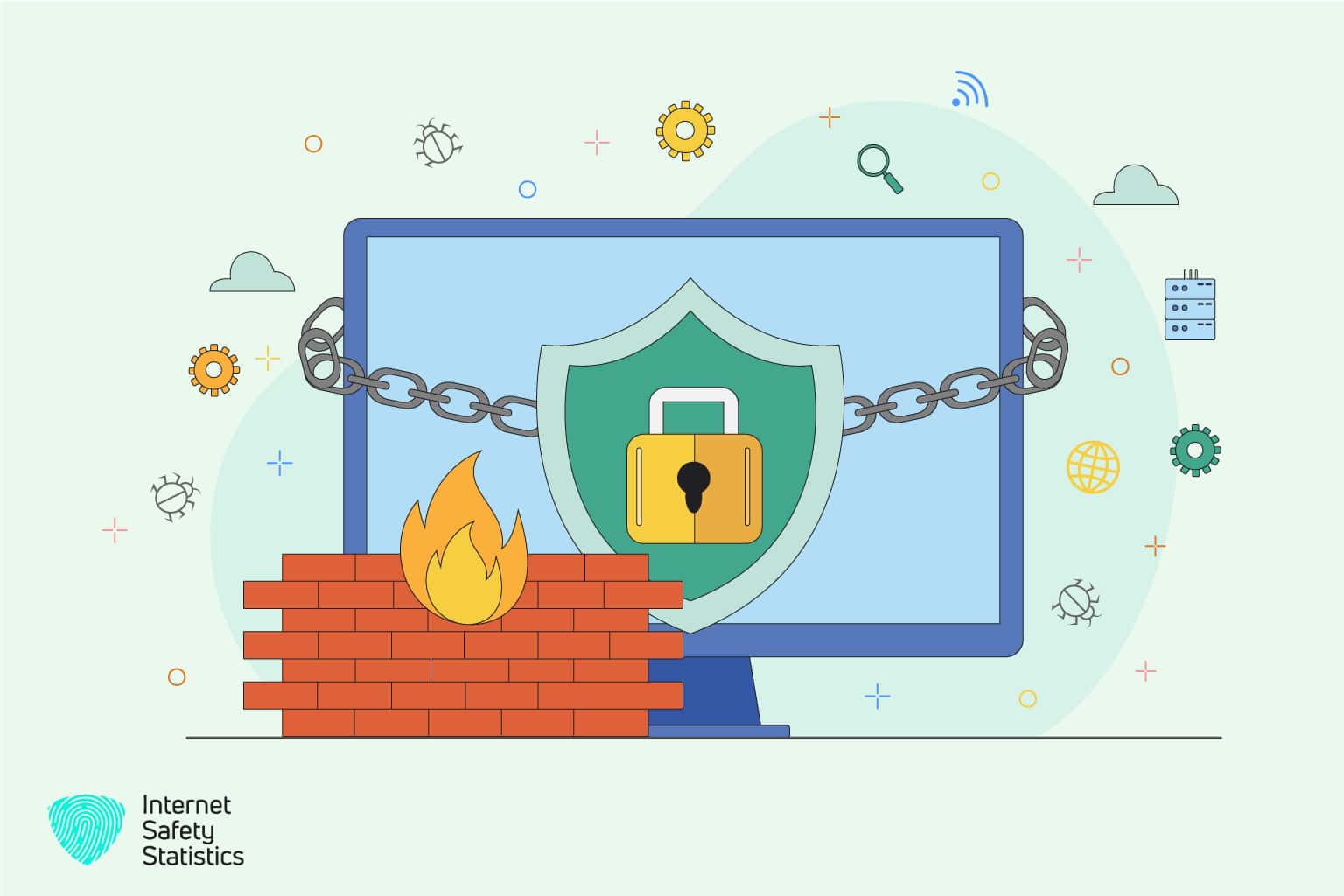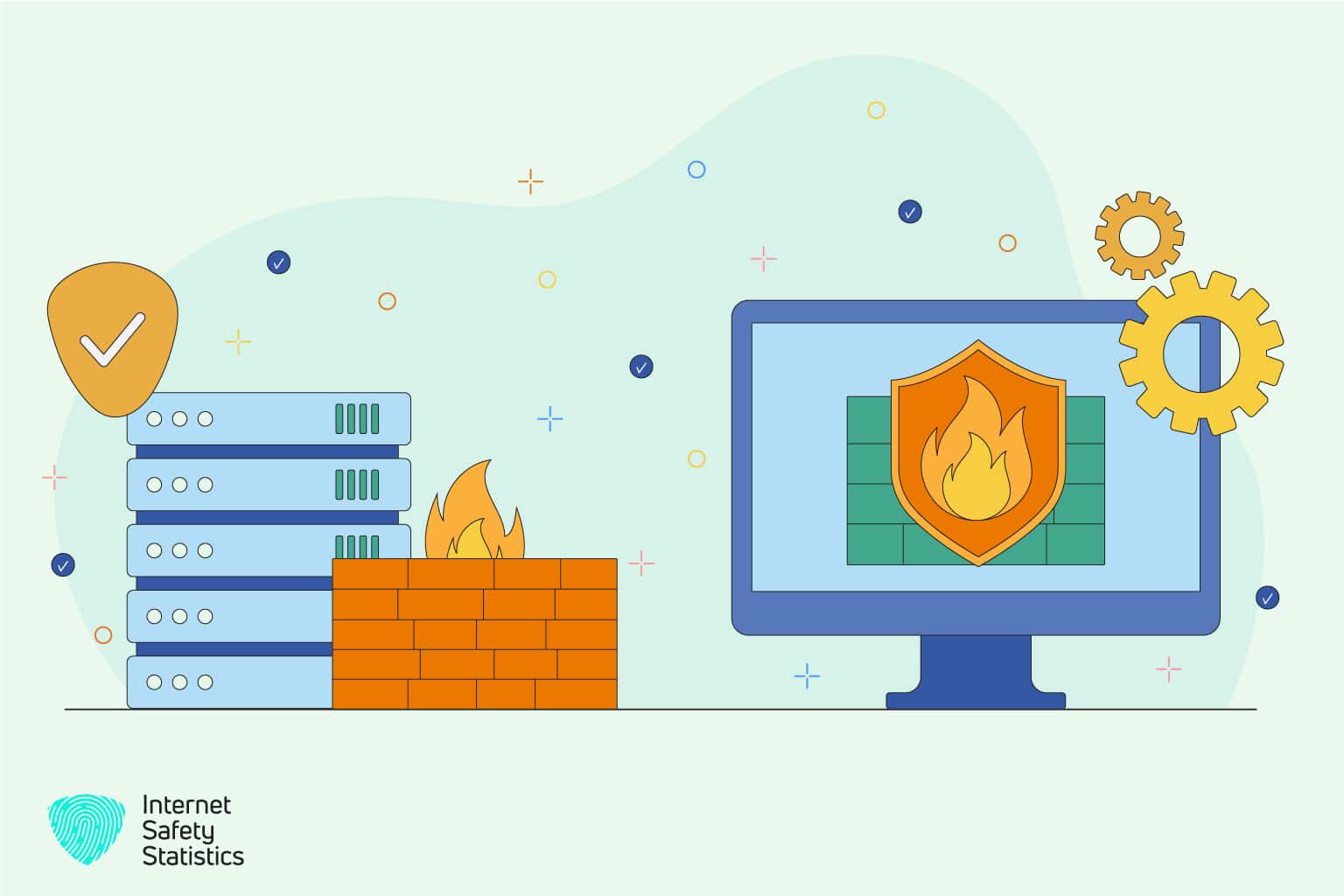
Which is better, software firewalls or hardware firewalls? Which one do you need? But first, what is a firewall? In computer language, a firewall is a digital defence system protecting computers and networks from unauthorised access. Every firewall is a software component that evaluates a specific system’s incoming and outgoing data.
The firewall’s first task is to compare the sender and destination addresses and check the services used. It checks the continuous data traffic and restricts unauthorised network access from the outside based on defined rules.
A firewall is a supplementary security system; nevertheless, it cannot be confused with antivirus software on a PC. Suppose we are to examine both firewall and antivirus. In that case, we will realise that the antivirus’ job is to identify and isolate harmful programmes. In contrast, the firewall monitors connections and outgoing and incoming data within the network. The firewall is an extra system between the PC and the Internet/network.
Additionally, the firewall prevents other aspects, such as the transmission of unauthorised data packets, like harmful “worms”. Even in terms of outgoing data, a firewall is helpful in practice; it can prevent a PC identified with malware from sending data to other computers in the network. This process frequently happens without your knowledge as a user because the malware originates these data transmissions.
After pointing out how essentially a firewall is, it is time to delve deep into its different kinds and which one you need to install.
What are the Firewall Types?

There are two well-known types of firewalls that vary in their functions and configuration: hardware firewalls and software firewalls.
Hardware Firewall
The term “hardware firewall” may be a bit deceptive here; there is no actual firewall here that you can touch or feel. After all, any “hardware firewall” has a software solution as one of its main components!
The term here refers to the fact that this type of firewall runs on separate hardware outside the system it is supposed to monitor.
In other words, hardware firewalls are external devices that are ready to use and are made up of hardware and software. It usually controls a concrete system and is responsible for a whole network.
It is installed on an external device/system and monitors two networks simultaneously. It monitors the traffic between the private network and the firewall and, at the same time, the traffic between the firewall and the superordinate network.
Hardware firewalls can usually detect and analyse traffic based on destination and sender addresses, ports, and protocols. Here are some of the critical elements of the external firewall:
- To filter data packets, a packet filter includes port and protocol filters (source IP and destination IP addresses). The packet filter corresponds to the primary function of external firewalls.
- It has the ability to use a stateful inspection to assign packets to different connection states. Stateful filtering builds on packet filtering but evaluates additional connection data.
- It can adapt the network addresses in the transition between the internal and the external network, utilising proxy and Network Address Translation (NAT).
- The firewall often acts as a primary endpoint for connections to the virtual private network (VPN). VPN connections allow devices from the Internet, such as work laptops or cell phones of employees in the home office or on-site, to establish an encrypted connection to the internal network.
Software Firewall
Unlike the hardware firewall, the software firewall (also called personal firewall or desktop firewall) works on the system to be protected from within and not on a separate system connecting networks or network segments.
A software firewall restricts access of the PC or mobile device on which it is installed to the local network and the internet. Another prevention the software firewalls can perform is keeping the programmes installed on the PC it is protecting from connecting to the network or the internet.
However, this last option can be altered; you can set exceptions for certain applications so that your software firewall won’t prevent them from connecting to the network or the internet. It can also monitor and control the flow of information between the PC and the internet through the ports.
Hardware Firewall or Software Firewall: Which is Better?

Hardware firewalls and software firewalls have different functions and usages. However, they both serve the same purpose, protecting your PC and network. In fact, software and hardware firewalls somehow complete each other.
Nevertheless, it can be said that in those areas where the functions of the hardware and software firewall overlap, the hardware firewall is more reliable and therefore performs better in a direct comparison.
This is because the hardware firewall is a more specific device designed exclusively for increased network security. As the hardware firewall is physically separate from the computer systems it protects, it is more challenging to disable or tamper with. However, if malware leverages software firewalls, the complete protection of the corresponding system falls away.
On the other hand, software firewalls have the advantage that they can monitor programmes locally, while hardware firewalls are limited to data traffic. But, a private firewall is also an additional attack vector. Some viruses spread through firewalls or infect them in order not to be detected.
An external firewall does not have this disadvantage, of course, since it does not run on the systems to be monitored. However, the configuration must also be considered here: If the machine on which the firewall is running is insecure, it will be more damaging in case of an attack.
In fact, software firewalls have the advantage of being installed on one device, so it is focused mainly on that device. In contrast, hardware firewalls are usually installed between private and public networks, so they can only monitor connections between these two networks. A private/software firewall also slows down the system it runs on due to its resource consumption, while a hardware firewall only slows down the traffic.
To sum up, each type of firewall has its usage. Choosing which kind of firewall to have, whether software or hardware, depends entirely on your need and type of business. However, regardless of the type you choose, having a firewall is one of the fire defence lines against data breaches, and having one on your PC and network is a must!
